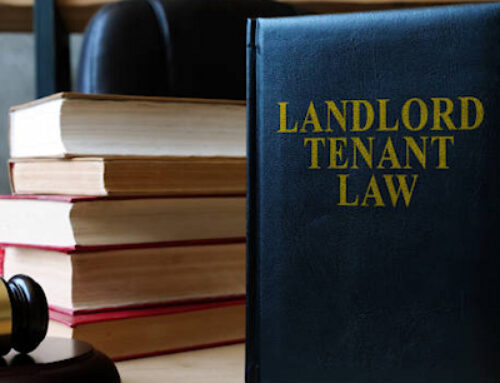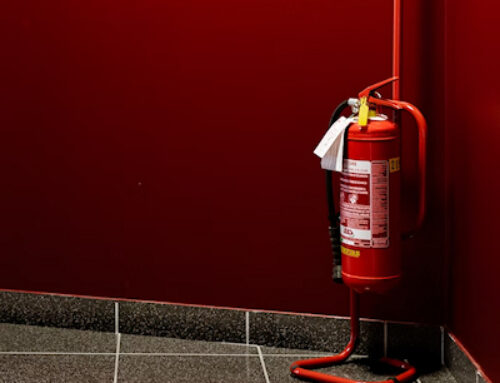Is pest control the responsibility of the landlord or tenant?
Who is responsible pest control during a tenancy? Unfortunately, there is not always a straight forward answer. Pest infestations can be very distressing for both the landlord and tenant. There is a risk of disease, maybe damage or destruction and contamination of foodstuffs by rodents and insects. As a landlord with a rental property in Southend, you need to know if it is your responsibility to manage pest issues, and which pests you are most likely to come across.
Common pests
Some pests are a constant threat whatever the property type – namely rodents. It can be difficult to control rats and mice, especially when properties join and the animals can easily pass from one property to another.
If you discover rodents in your rental property, tenants are coming into contact with a public health pest that has the potential to carry a number of diseases. You should call a reputable Pest Control company at the earliest opportunity to have the situation dealt with. The Common Rat for example often lives in sewer systems; so, if rats have free access, what’s present in the sewer will also be present in the property. Rats also carry Weils disease, an infection transferred via their urine. Weils disease in humans has flu like symptoms, but can eventually result in the shut-down of vital organs and in extreme circumstances, even death.
Rodents can also be very destructive. Wood, brick, plastic and some light steel are all attractive to a gnawing rodent; water tanks, gas pipes and electrical cabling are commonly damaged.
If you have an uncontrolled rodent infestation in your property, you are literally ‘playing with fire’, or flood, as they gnaw through essential services. It is also worth noting that grey squirrels may be fun to watch in the garden, but are also rodents and will cause untold damage if they establish themselves in loft spaces.
Insects such as bed bugs can also be extremely problematic, especially if a furnished rental property has a number of tenants over a period of time. Bed bugs cannot fly, do not jump, and are traditionally transferred into properties amongst clothing in suitcases and furniture. Once established, bed bugs can be incredibly difficult to deal with due to their ability to hide in the smallest crevice. They can also survive starvation for several months. Bed bugs are rugged insects that can crawl long distances in search of food. High density living locations such as flats are typically places where bed bugs can expand rapidly and infest large areas in relatively short periods of time. Rapid detection and treatment is the key to successful eradication.
As with bed bugs, fleas can create headaches for landlords and tenants. They can lay dormant for many months in a property awaiting a suitable source to feed upon. As a new tenant moves into a property, a food supply appears, fleas will awaken and start a feeding frenzy. As with bed bugs and rodents, fleas should be treated by a qualified pest control professional to ensure elimination.
The question often asked by tenants letting property in Southend as well as private landlords is ‘who is responsible for dealing with infestations?’
The Housing Act 2004 states ‘residential premises should provide a safe and healthy environment for any potential occupant or visitor’. In this respect, it is clear landlords have a responsibility for the health of their tenants, especially regarding what can be termed as ‘public health’ pests with disease spreading potential. It is the responsibility of the landlord to ensure their properties are pest free when new tenants move in.
However, if the pest problem is noticed by the tenants during the tenancy period, the landlord may argue the tenants are responsible for triggering the pest infestation. The tenant has a responsibility to maintain an acceptable level of hygiene and cleanliness. Nevertheless, as for any dispute, one of the two parties must have grounds to support their claim.
In general, pest control should never be grounds for termination of a tenancy agreement, or for a compensation claim or refund request. Things happen, and they need to be dealt with promptly and appropriately. As a landlord, it is advisable to call a pest control company as soon as possible after discovering an infestation. You can resolve who will foot the bill once the problem is being addressed. The potential distressed caused to tenants should not be factored in when considering who is responsible for footing the pest control bill. The key to controlling pest infestations is maintaining close working relationships between tenants and landlords.
We are happy to offer half an hour of face-to-face advice, free of charge, to local individuals considering becoming a landlord.
Please telephone and ask to speak to Marcus, George or Crystal on 01702 445 606.
Marcus James is Lettings Manager at Pace, an independent Southend on Sea Letting Agent. He deals with every aspect of the property letting process, providing expert and candid advice together with tailor-made marketing plans for each property he lists for rental.
Marcus prides himself on ensuring our landlord clients get the best return in the right timeframe for their investments by conducting rental appraisals, letting viewings and oversees the running of the lettings department.








